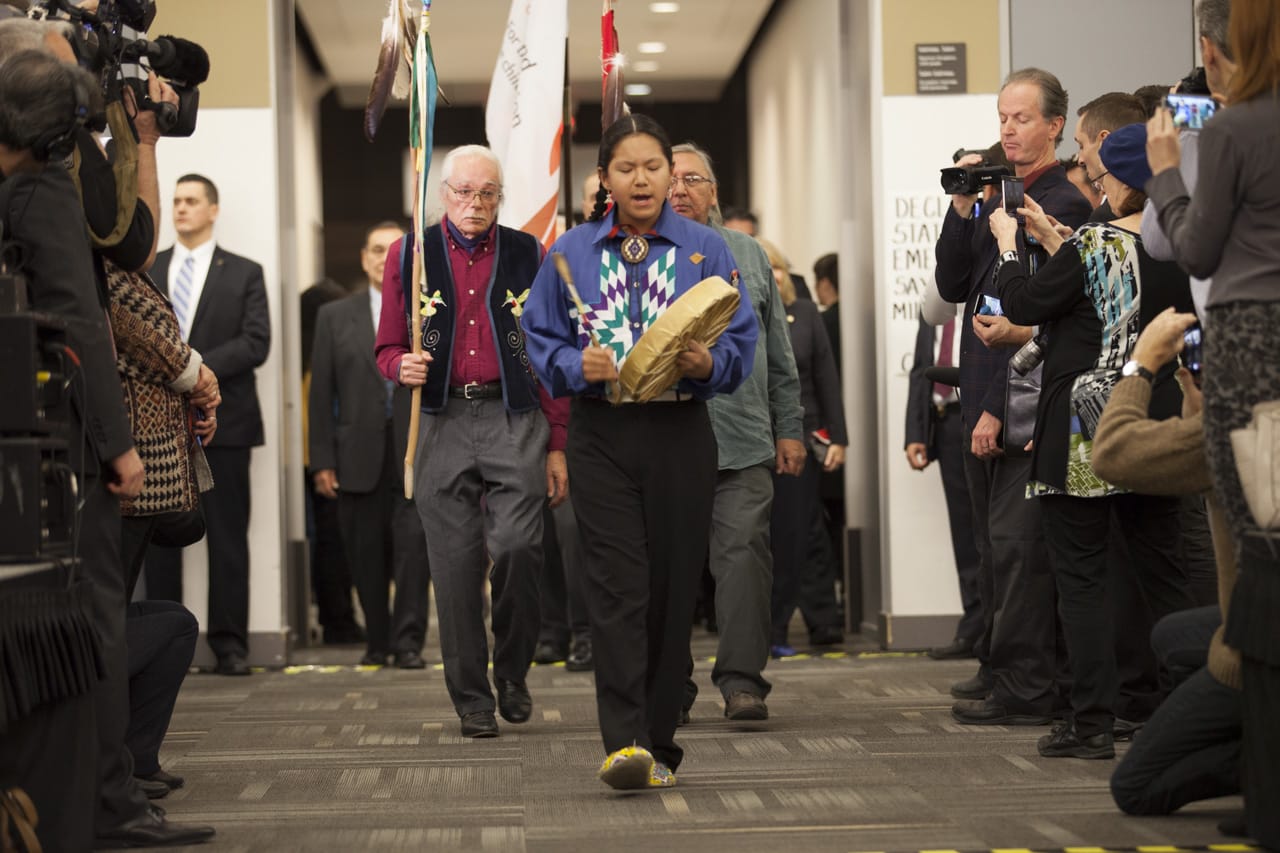Public Statement on the Fifth Anniversary of the Final Report of the Truth and Reconciliation Commission of Canada

THE HONOURABLE MURRAY SINCLAIR, CHIEF WILTON LITTLECHILD, DR. MARIE WILSON, COMMISSIONERS
DECEMBER 15, 2020
Five years ago today, we stood together with residential school Survivors to present the final report of the Truth and Reconciliation Commission of Canada. Canadians from all walks of life embraced the Calls to Action with a sense of urgency, purpose, and unity. Today, we are concerned by the slow and uneven pace of implementation of the Calls to Action. We have reconvened for the first time in five years because we feel strongly that this sense of urgency, purpose and unity must be renewed.
Essential foundations for reconciliation have yet to be implemented, despite government commitments. In some jurisdictions, there is danger of losing gains that have been made.
We acknowledge and welcome the fact that the federal government has committed to moving forward with both the establishment of the National Council on Reconciliation and passage of legislation to implement the United Nations Declaration on the Rights of Indigenous Peoples. These are key to the ongoing work of truth, reconciliation, healing, and justice. Yet, even now, nothing is certain. In fact, six provinces have called for the implementation legislation to be further delayed, despite the extensive debates around the UN Declaration that have taken place in Canada since its adoption by the United Nations in 2007.
The TRC was established by court order to investigate and document the history and impacts of more than a century of forced residential schooling for Indigenous children in Canada. Over the course of our six-year mandate, we heard statements from almost 7000 residential school Survivors, their families and those affected by the residential schools. These Survivors described not only the hardships and abuses they had endured, but also the lasting harm caused to their families, languages, cultures and communities and cultures.
All Survivors and their families deserve truth, justice and healing. Many of these Survivors are no longer with us, however. With sadness, we acknowledge that three of the 10 members of our TRC Survivors Advisory Committee have now passed away. They and thousands of others who have also passed since our reporting, contributed so much to our national understanding. They deserved to see real and meaningful progress in their lifetimes.
All of Canada, as a country, needs to see this progress, too.
We value and appreciate the many initiatives and actions in response to our Calls to Action. The National Centre for Truth and Reconciliation was brought to life through the work of the Commission. It has continued to grow as an invaluable guardian and steward of the statements and records that were entrusted to the TRC, and the truths they contain. It is significant that Canada has now agreed to designate residential schools as an event of national historical significance. We have been moved to see the enthusiastic participation of students and educators across the country on Orange Shirt Day, and are encouraged that a bill to establish it as a National Day for Truth and Reconciliation is now with the Senate. We draw hope from the efforts of educational institutions to adopt new curricula to teach the history of residential schools, the history of relations between Canada and Indigenous peoples, and the values, traditions and knowledge systems of Inuit, Métis and First Nations.
However, beyond positive efforts, we also see worrying signs, such as the political roll back of progress made in public school curricula in Alberta and Ontario. This is not only a barrier to reconciliation – it is also an attack on the truth.
This is why the National Council for Reconciliation and implementation of the UN Declaration are so important. The National Council is essential to track, assess and report on all aspects of national reconciliation. As we stated in our final report, the UN Declaration is the framework to achieve such reconciliation at all levels and across all sectors of society.
Let us be clear. Truth, reconciliation, and healing are matters of urgency. If anything, that urgency is greater and more apparent today than ever.
First Nations, Inuit and Métis Nation communities face widespread poverty, food insecurity and housing insecurity. This continues to lead to disproportionately high numbers of Indigenous children in care, and over-representation of Indigenous persons in the criminal justice system.
The National Inquiry on Missing and Murdered Indigenous Women and Girls, something we had called for in the Calls for Action, gave us a clear and stark picture of the horrendous levels of violence facing First Nations, Inuit and Métis women, girls and two-spirit persons. The National Inquiry also confirmed very clearly that nothing less than transformative change will end this violence.
In the past year, we have also been powerfully reminded how systemic racism in the healthcare system puts Indigenous peoples at risk, to the point of lives being lost that could have been saved by a simple act of care that every patient deserves. We are also acutely aware that the profound inequalities facing Indigenous peoples have made the risks from COVID-19 that much greater and more urgent.
In this context, we are calling on federal, provincial and territorial governments, and indeed all Canadians, to renew their commitments and redouble their efforts toward reconciliation and healing.
Reconciliation requires all Canadians to come together with resolution and common purpose. It is not too late.
Survivors told us that Canada must never forget the harm that was once done to the most vulnerable – the children. We have reconvened today because this is a truth that must be honoured.
This is not an anniversary for celebration, but one for national honesty, and urgent and meaningful action.
View the Remembering the Truth and Reconciliation Commission of Canada’s Closing Ceremony Exhibit
